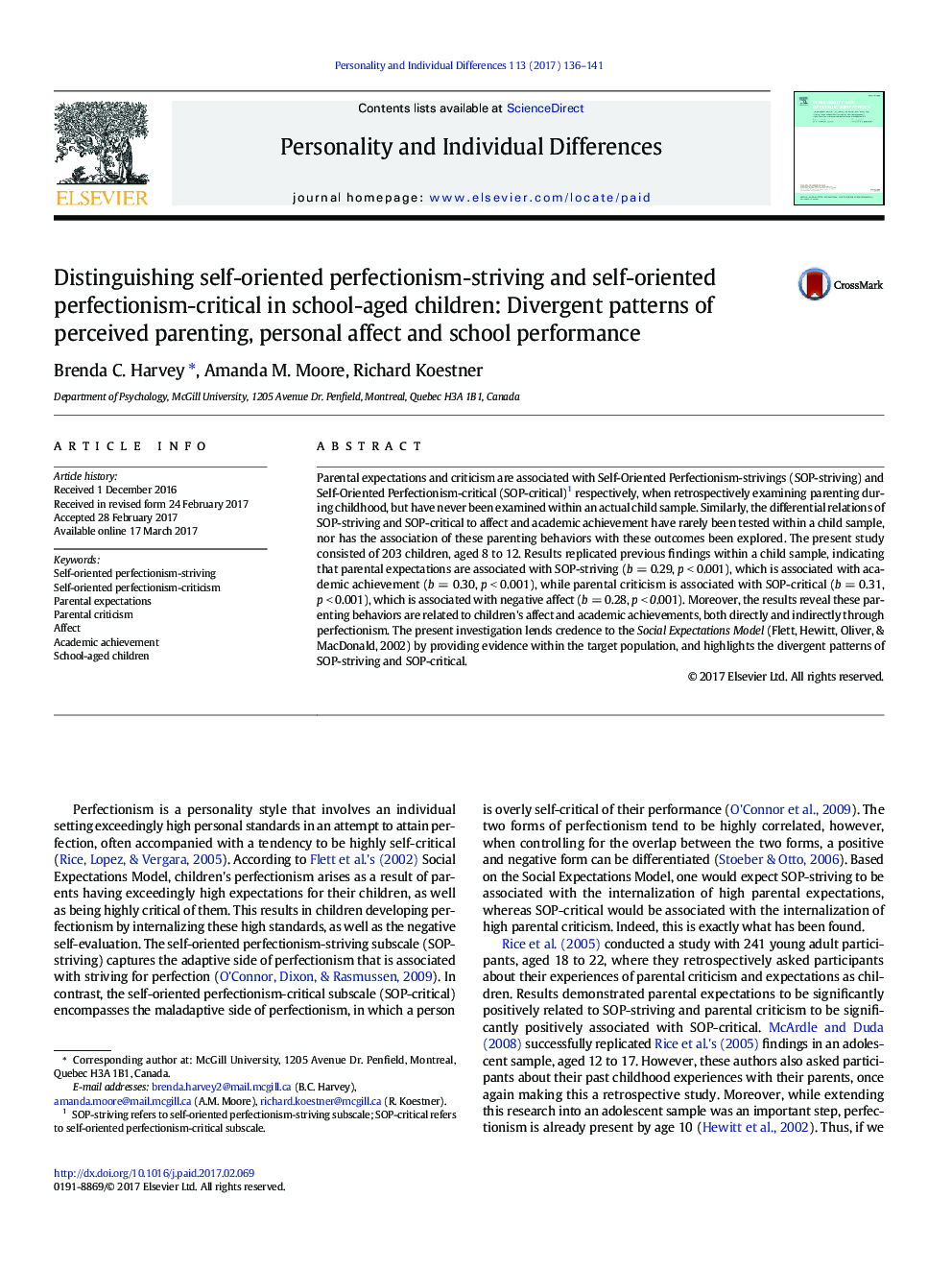| کد مقاله | کد نشریه | سال انتشار | مقاله انگلیسی | نسخه تمام متن |
|---|---|---|---|---|
| 5035771 | 1472005 | 2017 | 6 صفحه PDF | دانلود رایگان |
- Parental expectations predicts self-oriented perfectionism-striving (SOP-striving).
- Parental criticism predicts self-oriented perfectionism-critical (SOP-critical).
- SOP-striving predicts academic achievement; SOP-critical predicts negative affect.
- Parenting relates to child outcomes indirectly through perfectionism.
- All results were found within a sample of children ages 8 to 12Â years old.
Parental expectations and criticism are associated with Self-Oriented Perfectionism-strivings (SOP-striving) and Self-Oriented Perfectionism-critical (SOP-critical)1 respectively, when retrospectively examining parenting during childhood, but have never been examined within an actual child sample. Similarly, the differential relations of SOP-striving and SOP-critical to affect and academic achievement have rarely been tested within a child sample, nor has the association of these parenting behaviors with these outcomes been explored. The present study consisted of 203 children, aged 8 to 12. Results replicated previous findings within a child sample, indicating that parental expectations are associated with SOP-striving (b = 0.29, p < 0.001), which is associated with academic achievement (b = 0.30, p < 0.001), while parental criticism is associated with SOP-critical (b = 0.31, p < 0.001), which is associated with negative affect (b = 0.28, p < 0.001). Moreover, the results reveal these parenting behaviors are related to children's affect and academic achievements, both directly and indirectly through perfectionism. The present investigation lends credence to the Social Expectations Model (Flett, Hewitt, Oliver, & MacDonald, 2002) by providing evidence within the target population, and highlights the divergent patterns of SOP-striving and SOP-critical.
Journal: Personality and Individual Differences - Volume 113, 15 July 2017, Pages 136-141
